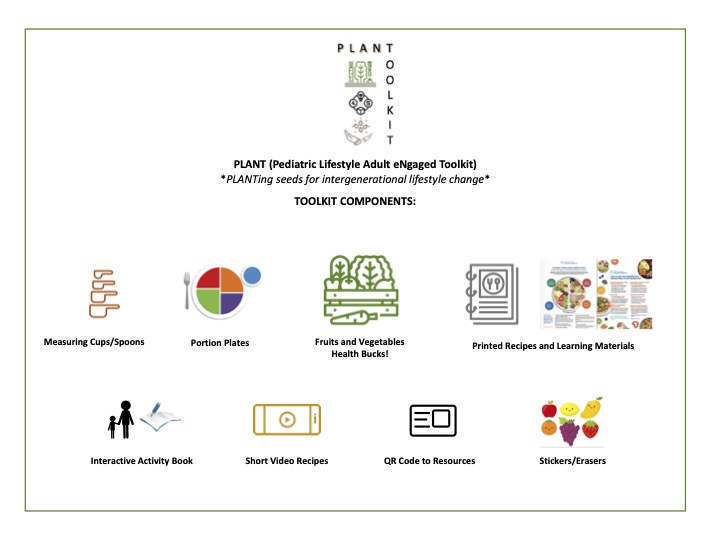General Pediatrics
Session: General Pediatrics 3
350 - PLANTing seeds for intergenerational and lifecourse healthy habits: A Preliminary Needs Assessment for a Pediatric Lifestyle Adult eNgaged Toolkit (PLANT)
Saturday, May 4, 2024
3:30 PM - 6:00 PM ET
Poster Number: 350
Publication Number: 350.1635
Publication Number: 350.1635

Olivia Lee, BS (she/her/hers)
Medical Student
Perelman School of Medicine at the University of Pennsylvania
Philadelphia, Pennsylvania, United States
Presenting Author(s)
Background: Establishing positive dietary patterns in childhood is essential to promoting overall health behaviors that persist into adulthood. Nearly one third of children in the US do not eat a daily fruit and one half of children do not eat a daily vegetable. Lifestyle medicine includes supportive relationships, stress reduction, exercise, avoidance of substance use, and most emphasized, a vegetable-forward, plant-based dietary pattern. Incorporating lifestyle medicine in primary care settings is currently more common in adult clinics than in pediatric clinics, inspiring the creation of a Pediatric Lifestyle Adult eNgaged Toolkit (PLANT) quality improvement initiative.
Objective: A needs assessment was conducted as a preliminary step for implementing PLANT in a Pediatric Ambulatory Clinic waiting room in a large public hospital. We aimed to 1) understand the perceived utility of the proposed toolkit components, focused on healthy eating and social support (Figure 1) and 2) learn how adults perceive their social, relational role as caregivers in shaping healthy habits for their children.
Design/Methods: A mixed methods survey was created in REDCap. English-proficient adult caregivers of children aged 2-16 years were provided with a printed copy of educational materials and a description of proposed toolkit items. Caregivers’ perceived utility of proposed toolkit components in introducing new foods and overall fruit and vegetable consumption were ranked on a 5-point Likert Scale. Open-ended questions aimed to identify opportunities to refine toolkit contents and understand caregiver attitudes. Upon completion of the 10-minute survey, participants received $10 in HealthBucks and a map of nearby farmers markets to redeem them.
Results: Surveys were disseminated and completed by 20 participants. All ranked toolkit components had perceived helpfulness of 4 or above, with HealthBucks and measuring cups ranking the highest. Most participants (n=17, 85%) reported interest in joining a social media support group. Through qualitative responses, caregivers identified recipes as most useful of the printed materials. All participants viewed their caregiving role as beneficial to their ability to form healthy child habits. Participants expressed plans to use PLANT to learn new recipes, spend more time as a family, and to learn more about their child.
Conclusion(s): PLANT shows potential for fulfilling its goal of increasing fruit and vegetable intake in pediatric patients. We plan to implement and evaluate the PLANT program with families who visit the clinic and screen positive for insufficient fruit and vegetable intake.

